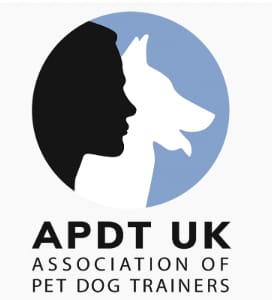Playing Fetch With Your Dog - is it a Good or a Bad Thing?
25/03/2024 - Blog
The Fetch Dilemma: Unveiling the Complexities of a Simple Game
Fetch: a seemingly simple, universally recognized game between a dog and their human. It's a game that has been played across countless parks and backyards, often seen as an easy way to tire out our four-legged friends. However, as we delve deeper into the dynamics of fetch, we discover it's not merely a game of throw and catch but a complex interaction that touches on the very nature of our dogs' instincts, their health, and their emotional well-being.
The Basics of Fetch
At its core, fetch involves throwing an object for a dog to chase, retrieve, and return to their human, only for the cycle to repeat. It's an activity that seems to encapsulate the essence of play for many dogs, drawing on their natural instincts. Dogs, with their diverse backgrounds of breeding and purposes, from hunting to herding, find a part of their genetic coding lit up during the chase. This predatory motor sequence—eyeing, stalking, chasing, grabbing, and finally capturing—gets condensed into the act of fetching. But is this compression of instinct into a repetitive game always beneficial?
The Psychological Highs and Lows
The game of fetch taps into the adrenaline-fueled excitement of the chase, a component deeply ingrained in a dog's predatory instincts. This relentless pursuit can lead to an addictive high, where the act of chasing becomes the primary goal. Yet, this constant state of arousal doesn't allow for the natural resolution of the chase—capture, calm, and the endorphin-releasing act of chewing and dissecting prey. The result? Dogs can end up in a perpetual state of excitement without the subsequent relaxation, leading to difficulty in settling down and potential behavioral issues.
The Physical Toll
While fetch can seem like a harmless way to exercise a dog, especially those with high energy levels, it's not without its physical drawbacks. Repetitive motion and the high-impact nature of the game can lead to joint and spine issues, such as early-onset arthritis or injuries that could sideline a dog from activities they enjoy. This is particularly concerning for young puppies and high-drive dogs, who may push themselves beyond their physical limits.
Moderation and Alternatives
The key, as with many things, lies in moderation. Fetch can indeed be a part of a healthy, active lifestyle for dogs, provided it's not the only form of interaction and exercise they receive. Incorporating alternative games that engage a dog's mind as well as their body is crucial. I love to throw the toy in long grass or somewhere where my dogs can't see it so rather than them just chasing a fast moving ball, they have to use their nose and scent out the toy. You can also add in an element of training to the game by asking the dog for a behaviour such as a sit or down, you throw the ball, wait for it to stop moving and then send your dog out to search for it. Or throw the toy, and then move your dog a few metres away before sending them out to go and search for it. The possibilities of alternatives are endless!
Options like flirt poles, herding games, or even scent work by hiding toys also offer physical exercise while reducing the risk of injury and addressing the dog's psychological needs.
Tailoring the Game
Understanding the individual dog in front of you is paramount. Not all dogs are created equal in their desire or need for fetch. Some may prefer the joy of holding the object in their mouth, others the thrill of the chase, and yet others may find pleasure in the act of retrieving to their human. Recognizing these preferences allows for a more nuanced approach to play, ensuring it enriches your dog's life rather than simply exhausting them.
Conclusion: Fetch, Yes or No?
Fetch isn't inherently good or bad. Like many aspects of pet care, it's about finding balance and understanding the unique needs and limits of your furry companion. By varying activities and focusing on the mental and physical well-being of our dogs, fetch can remain a fun part of a larger, more comprehensive approach to play and exercise. It's not about discarding fetch entirely but about integrating it thoughtfully into our dogs' lives. After all, a happy dog is not just one that is physically tired but one that is mentally fulfilled and emotionally content.
Fetch: a seemingly simple, universally recognized game between a dog and their human. It's a game that has been played across countless parks and backyards, often seen as an easy way to tire out our four-legged friends. However, as we delve deeper into the dynamics of fetch, we discover it's not merely a game of throw and catch but a complex interaction that touches on the very nature of our dogs' instincts, their health, and their emotional well-being.
The Basics of Fetch
At its core, fetch involves throwing an object for a dog to chase, retrieve, and return to their human, only for the cycle to repeat. It's an activity that seems to encapsulate the essence of play for many dogs, drawing on their natural instincts. Dogs, with their diverse backgrounds of breeding and purposes, from hunting to herding, find a part of their genetic coding lit up during the chase. This predatory motor sequence—eyeing, stalking, chasing, grabbing, and finally capturing—gets condensed into the act of fetching. But is this compression of instinct into a repetitive game always beneficial?
The Psychological Highs and Lows
The game of fetch taps into the adrenaline-fueled excitement of the chase, a component deeply ingrained in a dog's predatory instincts. This relentless pursuit can lead to an addictive high, where the act of chasing becomes the primary goal. Yet, this constant state of arousal doesn't allow for the natural resolution of the chase—capture, calm, and the endorphin-releasing act of chewing and dissecting prey. The result? Dogs can end up in a perpetual state of excitement without the subsequent relaxation, leading to difficulty in settling down and potential behavioral issues.
The Physical Toll
While fetch can seem like a harmless way to exercise a dog, especially those with high energy levels, it's not without its physical drawbacks. Repetitive motion and the high-impact nature of the game can lead to joint and spine issues, such as early-onset arthritis or injuries that could sideline a dog from activities they enjoy. This is particularly concerning for young puppies and high-drive dogs, who may push themselves beyond their physical limits.
Moderation and Alternatives
The key, as with many things, lies in moderation. Fetch can indeed be a part of a healthy, active lifestyle for dogs, provided it's not the only form of interaction and exercise they receive. Incorporating alternative games that engage a dog's mind as well as their body is crucial. I love to throw the toy in long grass or somewhere where my dogs can't see it so rather than them just chasing a fast moving ball, they have to use their nose and scent out the toy. You can also add in an element of training to the game by asking the dog for a behaviour such as a sit or down, you throw the ball, wait for it to stop moving and then send your dog out to search for it. Or throw the toy, and then move your dog a few metres away before sending them out to go and search for it. The possibilities of alternatives are endless!
Options like flirt poles, herding games, or even scent work by hiding toys also offer physical exercise while reducing the risk of injury and addressing the dog's psychological needs.
Tailoring the Game
Understanding the individual dog in front of you is paramount. Not all dogs are created equal in their desire or need for fetch. Some may prefer the joy of holding the object in their mouth, others the thrill of the chase, and yet others may find pleasure in the act of retrieving to their human. Recognizing these preferences allows for a more nuanced approach to play, ensuring it enriches your dog's life rather than simply exhausting them.
Conclusion: Fetch, Yes or No?
Fetch isn't inherently good or bad. Like many aspects of pet care, it's about finding balance and understanding the unique needs and limits of your furry companion. By varying activities and focusing on the mental and physical well-being of our dogs, fetch can remain a fun part of a larger, more comprehensive approach to play and exercise. It's not about discarding fetch entirely but about integrating it thoughtfully into our dogs' lives. After all, a happy dog is not just one that is physically tired but one that is mentally fulfilled and emotionally content.
Copyright © 2025 CK9 Training








